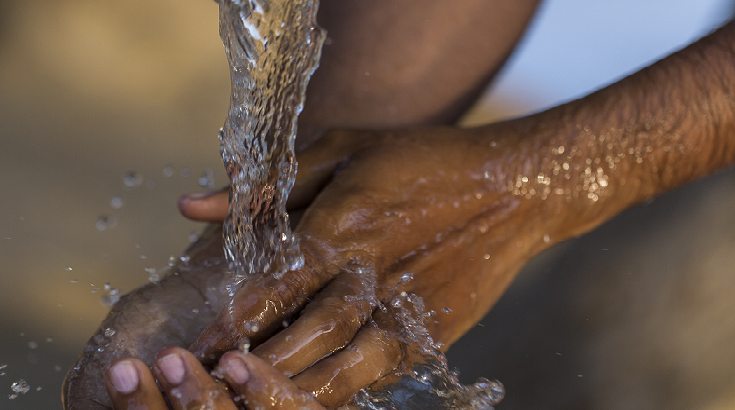Clean hands. The benefits are vast, but the reality is that many people do not consistently practice proper hand hygiene. The reasons hand hygiene is often neglected vary, from individuals who don’t appreciate the full benefit of handwashing, to lack of access to clean water and/or soap to effectively wash one’s hands. Hand hygiene may not be something that people consciously think about regularly, but it should be. It is essential to infection prevention and overall good health. In honor of Global Hand Hygiene Day, we have five reasons why clean hands matter in the fight to take on typhoid. The bottom line: clean hands can save lives.
1. Clean hands can protect you from diseases such as typhoid.
Proper hand hygiene can prevent many common and dangerous infections, including typhoid. Typhoid is spread via the fecal-oral route, and the bacteria can pass into people’s mouths through food, water, or hands that are contaminated. Hand hygiene is critical to preventing infection with typhoid, especially when practiced during critical times such as prior to preparing food and after using the restroom. Just look to the most infamous typhoid carrier, Mary Mallon, to see the impact just one person can have when she doesn’t wash her hands.
2. It is a pillar to achieving universal health coverage.
Handwashing with soap is one of the most cost-effective public health interventions and can greatly reduce the burden of global infectious diseases. It is a proven, simple approach that has demonstrated impact on the quality of care and patient safety across all levels of the health system. Yet, global rates of handwashing after using the toilet are estimated to be only 19 percent. Additionally, approximately 60 percent of health care workers do not routinely practice hand hygiene in health care settings. Proper hand hygiene compliance could lead to a 40 percent reduction in healthcare-associated infections. When we all clean our hands, we can achieve better health outcomes at home, work, and in health care settings.
3. Handwashing helps slow the spread of drug resistance.
Proper hand hygiene saves millions of lives every year when performed correctly. But when people don’t wash their hands, dangerous germs are allowed to spread. Preventing illnesses such as typhoid from making people sick reduces the antibiotics needed for treatment and averts infections with strains that are already resistant to antibiotics, both ways in which we can slow drug-resistant diseases from spreading. This is especially important for typhoid, with increasing multidrug- and extensively drug-resistant strains spreading across the globe, making infections more challenging and costly to treat and threatening to undo the progress we’ve made by making typhoid untreatable.
4. Handwashing can reduce the economic impact of illnesses for families.
Typhoid recovery can be long and costly, especially if hospitalization or surgery is needed. Families in low- and middle-income countries where typhoid is endemic often spend large percentages of their income to cover high treatment costs as well as the lost income from days off work caring for sick children. By practicing good hand hygiene, it is possible to prevent typhoid cases from occurring, saving families the economic hardship of seeking treatment while also keeping children healthy and in school where they can learn and grow.
5. Handwashing, combined with other health interventions, delivers an even greater benefit to health.
An integrated approach to typhoid prevention and control that utilizes all of the tools at our disposal― water, sanitation, and hygiene improvements alongside typhoid conjugate vaccines―is the one-two punch we need to take on typhoid. A pilot project in Nepal found that integrated immunization and hygiene promotion led to substantial behavior change among caregivers and strengthened both routine immunization coverage and adherence to good hygiene behaviors such as washing hands with soap, food hygiene, and household water treatment. When we combine proven interventions, we can reduce the spread of typhoid, keeping kids healthy so that they can grow and thrive.
Photo: PATH/Asim Hafeez.



